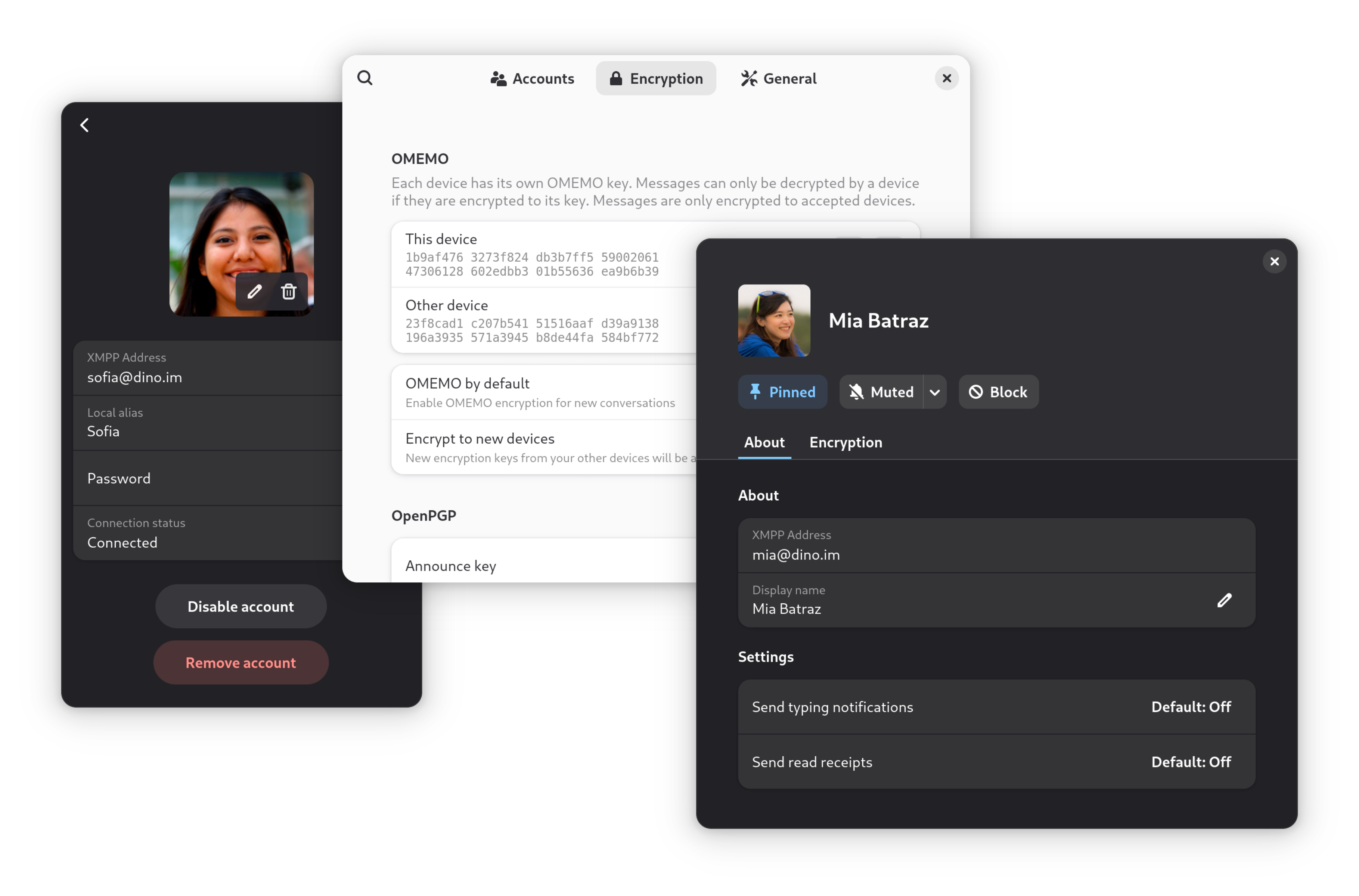-
Pl
chevron_right
Erlang Solutions: Looking Forward to ElixirConf EU 2025
news.movim.eu / PlanetJabber • 1 May, 2025 • 6 minutes
ElixirConf EU 2025 is only two weeks away! Soon, it will once again be time for the Elixir community from Europe and beyond to come together, connect, and learn from each other about Elixir and its ecosystem. There will be dozens of talks from speakers across the community, training opportunities, and more.
This year’s event is being held in Kraków, Poland from May 15-16, with optional training available on May 14. Both in-person and virtual tickets are available.
Here’s a preview of some of the speakers on the schedule, and what to expect from their talks:
Keynotes
José Valim: Type System and Elixir Updates
No ElixirConf would be complete without an appearance from Dashbit’s José Valim , the creator of Elixir.
Since
announcing it at ElixirConf EU 2022
, José and the Elixir team have been hard at work on a type system for the language based on set-theoretic types.
Implementation of this system is still underway
, and José will offer an update on its progress, as well as other recent activities from the Elixir team and what to expect in the next release.
Guillaume Duboc
, a PhD student at Université Paris Cité who is working on the type system for his thesis, will provide a more in-depth look at it in a separate talk, “What’s New with Elixir Types”.
James Arthur: Introducing Phoenix.Sync
James Arthur is a TED Prize and Microsoft Prize-winning co-founder of Opendesk , Hazy , and Post Urban , with prior software development experience for Apple and IDEO .
He is currently the CEO of ElectricSQL , developers of the Elixir sync engine Electric , and will be bringing that knowledge to his keynote introducing Phoenix.Sync , a new library that adds real-time sync to Phoenix. Expect a tour through the basics of the library, how to use it to sync data into both backend and frontend applications, and its potential uses in AI systems.
Davide Bettio and Mateusz Front: The AtomVM and New Horizons for Elixir
SECO Mind’s
Davide Bettio
has years of embedded systems and IoT experience, and began work on
AtomVM
, a lightweight BEAM implementation tailored for IoT devices, in 2017.
He’ll be joined by Mateusz Front , an Elixir developer at Software Mansion , to explain the results of a collaboration that has proved Elixir can be run on a whole new platform. They’re keeping quiet about the specifics, so you’ll have to check out their keynote to find out what they’ve come up with, along with plenty more information about AtomVM and Elixir runtimes.
Industry Stories
Anita Ludermann: Turn Old Into New: Moving to Elixir Feature by Feature
Anita Ludermann is a software engineer currently at Modell Aachen GmbH , where she has spent the last few years working with a team whose goal is to modernise a legacy codebase by transitioning it to Elixir.
She’ll be offering a first-hand account of what adoption of Elixir and the functional paradigm in general looks like in a real-world industry context, with all the challenges of shifting an entire system to a new language bit by bit while maintaining consistent functionality for the user.
Ettore Berardi: How Elixir Powers the BBC: From PoC to Production at Scale
After a stint at MacMillan Science and Education , Ettore Berardi joined the BBC , where he has now been working for eight years as a tech lead.
He’ll be relaying another story of Elixir adoption in action, namely the four-year process of shifting to Elixir at the BBC, starting with an initial proof of concept and culminating with nearly all BBC app and web traffic being served by Elixir. On top of the technical side of things, he’ll also discuss the realities of building and maintaining Elixir expertise in an environment largely unfamiliar with the language.
Libraries and Frameworks
Gus Workman: Introducing Trellis: Open Source Hardware for Nerves
You may already be familiar with Nerves , a framework for using Elixir to build embedded systems. Gus Workman is the founder of Protolux Electronics , a company specialising in Nerves-based hardware and software.
His talk will introduce Trellis, an open-source hardware platform reminiscent of Raspberry Pi , but specifically built with the purpose of producing custom circuit boards for Nerves and Elixir.
Parker and Shannon Selbert: The Architecture of Oban Web
Oban Web , the live dashboard for the prominent Elixir background job library Oban , recently became fully open source.
Now, Oban’s creator Parker Selbert and Oban core team member Shannon Selbert, co-founders of Soren , will be diving into the internals of the project, touring its key elements and interesting features. They promise to reveal how to structure a complex LiveView application with extensive real-world use, backed by Oban Met , a purpose-built distributed database.
Ridwan Otun and Sola-Aremu ‘Pelumi: Whisperer: An Elixir-Based Multi-Agent Framework
Ridwan Otun
and
Sola-Aremu ‘Pelumi
are two self-described Elixir evangelists working as engineering vice presidents at
Juicyway
and
Bank of America
, respectively.
Their talk will introduce
Whisperer
, a new and recently open-sourced framework that allows users to define, sequence, and orchestrate multi-agent AI systems. It’s another talk that’s well worth checking out if you’re interested in learning how Elixir developers are taking advantage of the new possibilities afforded by agents and LLMs.
Deep Dives
Conor Sinclair: Meta-Programming in Elixir: Dynamic Function Calling with LLMs
Multiverse’s Conor Sinclair is a senior software engineer specialising in frontend and with a passion for Elixir.
He’ll be joining the conference to address the now-ubiquitous topic of LLMs. Conor will be addressing Elixir specifically, walking the audience through the process of creating generic interfaces and using the Langchain library to expose them to LLMs. It’s sure to be a fascinating talk for anyone curious as to how these models interface with an existing application.
Robert Virding: Unveiling the Magic of Erlang/OTP Behaviours: A Deep Dive in the Codebase & Björn Gustavsson: My Beam History
We’ll also be getting talks from two developers whose experience with Erlang and the BEAM goes back to the very beginning.
Robert Virding
was one of the co-creators of Erlang at
Ericsson
, and now works for
Erlang Solutions
as Principle Language Expert.
He’ll be offering a deep dive into the Erlang/OTP codebase, as well as a BEAM VM training session the day before the conference proper.
Björn Gustavsson
, meanwhile, joined the OTP team in 1996 and later became the main developer for the BEAM, which is partially named for him. His talk will explore his three decades of history with the BEAM.
And More!
Of course, that’s only a fraction of the talks at this year’s event – there are plenty of others, and it’s worth checking out the full list of speakers to see if there’s anything else that catches your eye. If you’ve already committed to attending, the schedule is now available, so you can start deciding which talks to attend.
There’s sure to be something for everyone with an interest in Elixir and the BEAM, and Erlang Solutions will be present at the event as always, so be sure to say hi to our team if you do attend. We hope to see you in Kraków in a few weeks for ElixirConf EU 2025!
The post Looking Forward to ElixirConf EU 2025 appeared first on Erlang Solutions .





 XMPP via ejabberd 25.03
XMPP via ejabberd 25.03




